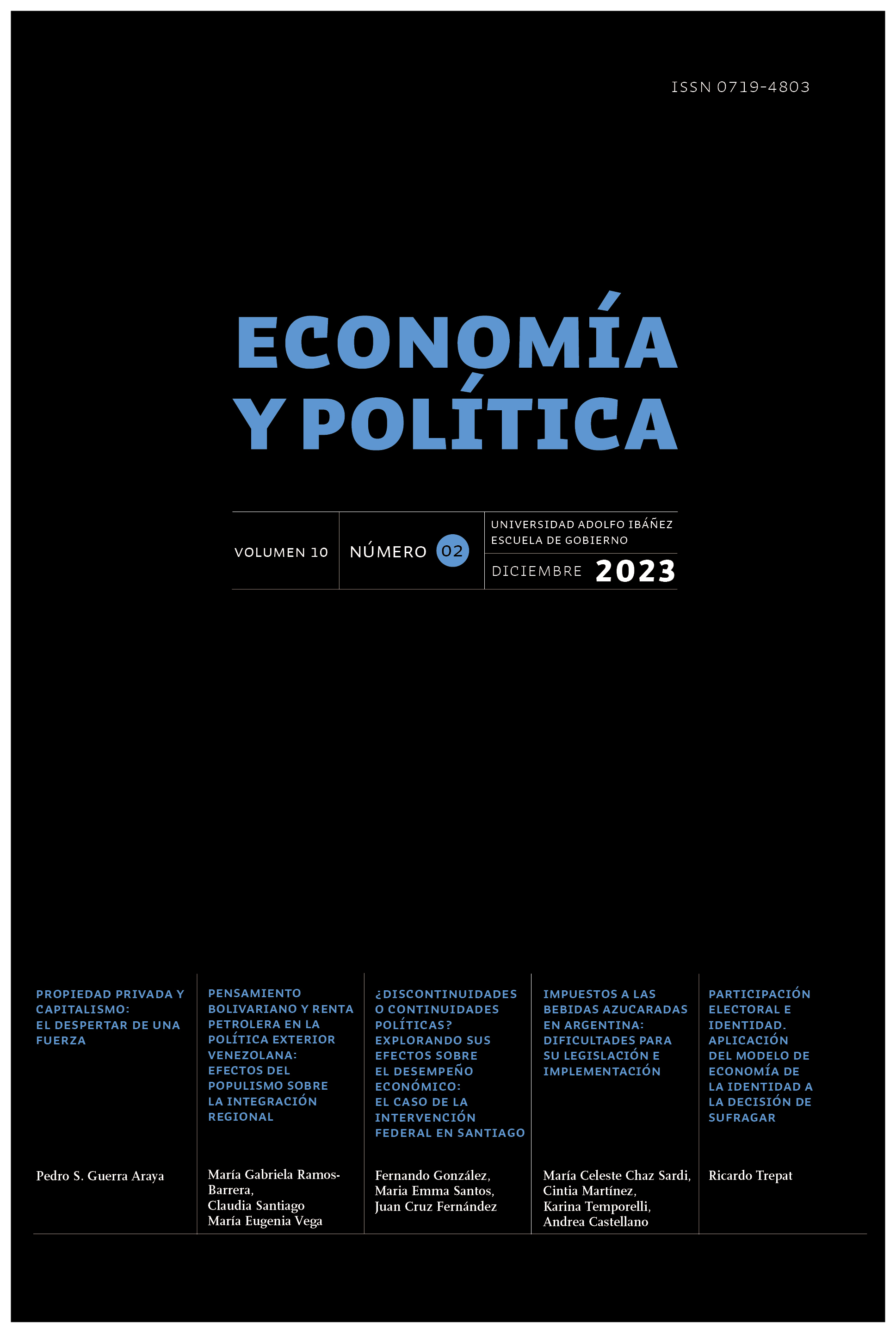Electoral Participation and Identity. Application of the Identity Economics Model to the Decision to Vote
DOI:
https://doi.org/10.15691/07194714.2023.010Keywords:
Political economy, identity economics, segregation, self-exclusion, minorities, cognitive disonanceAbstract
Can the voter turnout behaviour of a group with a common ethnic denominator be explained by the choice of identity? How is participation in elections influenced by participation in the labor market, also plausible to be explained by a choice of identity? We present an original bivariate model of cognitive adaptation to examine the decision to register for elections in the United States, where individuals experience tension between their own preferences and social pressure from members of their ethnic group. The decision of participation or self-exclusion from the labor market is applied together with the political decision as a second identity decision that constrains through the cost that the lack of coherence between decisions can generate. What is at stake for the individual is to be exposed to the gaze of the other as someone indolent towards his group, a situation that generates a social return in the form of loss in identity utility if he decides not to register. We offer evidence that social pressure results in higher participation in elections for most of the groups studied, as Jang argues (2009), and that social pressure is reinforced for those male minorities who experience employment discrimination, such as African Americans, Aboriginal people, and to a lesser extent Hispanics. By improving the understanding of the impact of the other’s gaze, this work allows us to assess up to what extent identification with the ethnic group of belonging influences and explains the differences in the political participation of minorities.


